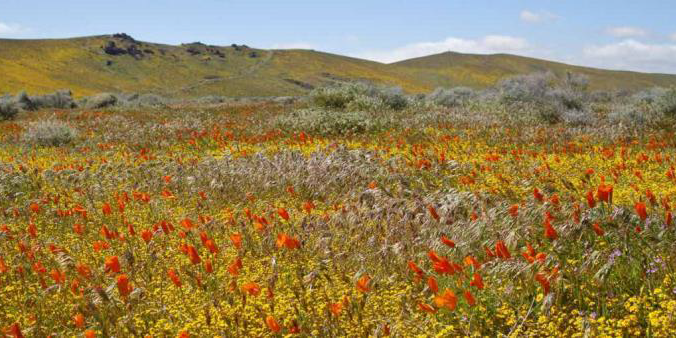Contact with nature is an important part of growing up and linking Americans to one another; competing priorities and other factors impede getting outdoors.
The findings from an unprecedented national study of Americans’ relationship to nature reveal an alarming disconnection, but also widespread opportunities for reconnecting. The results are prompting nature conservation, environmental education, and outdoor recreation leaders to rethink how they work to connect people with nature.
The Nature of Americans National Report: Disconnection and Recommendations for Reconnection reveals important insights from a study of nearly 12,000 adults, 8 to 12 year old children, and parents, and provides actionable recommendations to open the outdoors for all.
Americans encounter a number of society-wide forces disconnecting them from nature. Americans face competing priorities for their time, attention, and money. They live in places that often have more concrete than green space. It is increasingly normal to spend little time outside.
• More than half of adults report spending five hours or less in nature each week, and most are satisfied with this minimal amount of time. Many parents and older adults lament that children today are growing up with limited opportunities to experience nature.
• Parents say their 8 to 12 year old children spend three times as many hours with computers and TVs each week as they do playing outside.
Despite these challenges, there is opportunity. Americans of all backgrounds recognize that nature helps them grow healthy, be happy, and enjoy family and friends. Adults and children enjoy their time in nature. They feel affection for nature, are attracted to its beauty, appreciate its resources, and value its role in intellectual and spiritual development.
• Over three-quarters of adults rate contact with nature as very or extremely important for their physical health and emotional outlook.
• One-quarter of parents surveyed say contact with nature has improved their child’s weight, attention span, energy, anxiety, asthma or other health outcomes.
• Three-quarters of adults support increasing the number of programs for Americans to enjoy nature, the outdoors, and wildlife. More than one-half think programs forAmericans to enjoy nature and wildlife are underfunded.
• Seven out of 10 children surveyed would rather explore woods and trees than play on neat-looking grass. Eight out of 10 like activities such as climbing trees and camping.
Restoring Americans’ connection to nature requires overcoming the gap between interest and action. The Nature of Americans National Report details recommendations for restoring Americans’ connection to nature, including:
• Pay close attention to—and respond to—adults’ existing concerns about younger generations’ disconnection from nature.
• For adults and children, promote nature not only as a place for experiences, but also as a place for involvement and care.
• Assure adults and children that time in nature can be (and even ought to be) social.
• Support mentorship that extends beyond the parent–child relationship.
• Carefully consider how different sectors promote what “good” connection with nature is or ought to be.
• Deepen local experiences in nature near home.
• For children and adults, use geographically local or familiar activities as a bridge to geographically distant or unfamiliar activities.
• Provide socially safe and satisfying places outdoors, especially for urban and minority adults and children.
• Promote experiences in nature that match Americans’ multidimensional values of nature.
• For adults, promote conservation efforts as a way to improve their overall community and quality of life.
• Join parents, children, and adults alike in recognizing that expenditures on children’s engagement with nature are fundamentally important investments.
• Build partnerships among professionals in healthcare, education, urban planning, conservation, community development, and other sectors.
The core premise of these recommendations is that connection to nature is not a dispensable amenity but, rather, is essential to the health, economic prosperity, quality of life, and social well- being of all Americans.
The Nature of Americans is led by DJ Case & Associates. It builds on the late Dr. Stephen R. Kellert’s research on the importance of contact with nature to human well-being. This unique public–private collaborative is sponsored by the Fish & Wildlife Foundation of Florida, Florida Fish and Wildlife Conservation Commission, Texas Parks & Wildlife Department, U.S. Fish and Wildlife Service, Disney Conservation Fund, Morrison Family Foundation, Wildlife Management Institute, and Yale University.
More information and reports are available at NatureofAmericans.org.








